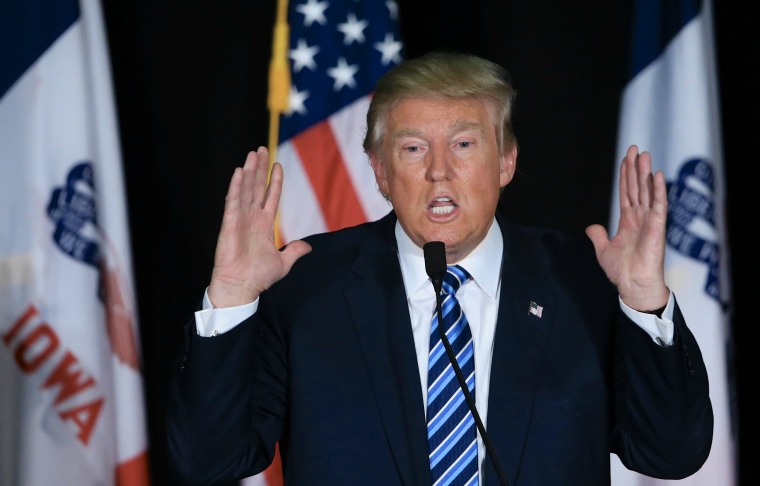Welcome to The Lid, your afternoon dose of the 2016 ethos… Brace yourselves, America. If they’re like us, a significant percentage of the pundits speculating about desperately important delegate calculations got to their lot in life in spite of spending their entire adolescence conspicuously avoiding having to learn math.
Get The Lid straight to your inbox each afternoon -- click here to sign up.
‘16 from 30,000
After a late night in Wisconsin, we’re pulling out our calculators and spreadsheets once more to figure out exactly what kind of margins Donald Trump will need to hit that magic number of 1,237 to clinch the GOP nomination *before* Cleveland. There’s a lot of breathless speculation -- and remember that the next contest in question doesn’t happen for two weeks and the whole shebang isn’t over until June -- so let’s lay out what we do and don’t know. 1) Trump’s loss in Wisconsin, where he picked up just six delegates, makes it less likely that he’ll get to the 1,237 threshold. It’s now going to be a *very* tough path for him, but it’s still a tad too early yet to say with absolute certainty that the door is completely closed on the possibility. 2) Trump will have to perform exceptionally well in the delegate-rich states of New York and California, as well as picking up big chunks of support in states like New Jersey (which is winner-take-all) and West Virginia and Connecticut to have a prayer of getting close to the threshold. And the pressure will be on for a strong performance in Indiana, a state where we don’t yet have any reliable polling. 3) The margins will matter. Remember that Trump will have the opportunity to go fishing in the pool of more than 100 unbound delegates during the weeks between the final contests on June 7 and the convention. If he’s only 20, 30 or 40 some votes short, he could successfully lock down enough commitments to come into Cleveland confident of a first ballot win. If we wake up on June 8 and Trump is 80 or 100 delegates short, that’s when the second ballot drama will explode into the foreground.
POPPING ON NBC POLITICS
- Donald Trump's campaign is facing new internal discord over who is advising the candidate and whether his current team must expand, NBC’s Katy Tur reports.
- Take a look at these six charts that explain the Wisconsin primary results.
- One in three GOP voters in the Badger State said they would abandon the party if Cruz or Trump is nominee.
- Round up from last night: Bernie Sanders Wisconsin win will give him momentum but do little to erase Hillary Clinton’s delegate lead, MSNBC’s Alex Seitz-Wald reports. And Cruz’s win has loosened Trump’s grip on the nomination, Benjy Sarlin writes.
- And from First Read: How does the map and math look for Bernie Sanders and Ted Cruz going forward?
FOR THE RECORD…
“To be honest, what I spoke at home was Spanglish.”
- Ted Cruz to a Spanish-language questioner.
TOMORROW’S SKED
Bernie Sanders campaigns in Philadelphia.
John Kasich is campaigning in Brooklyn with Montel Williams.
Ted Cruz is in Scotia, New York.


